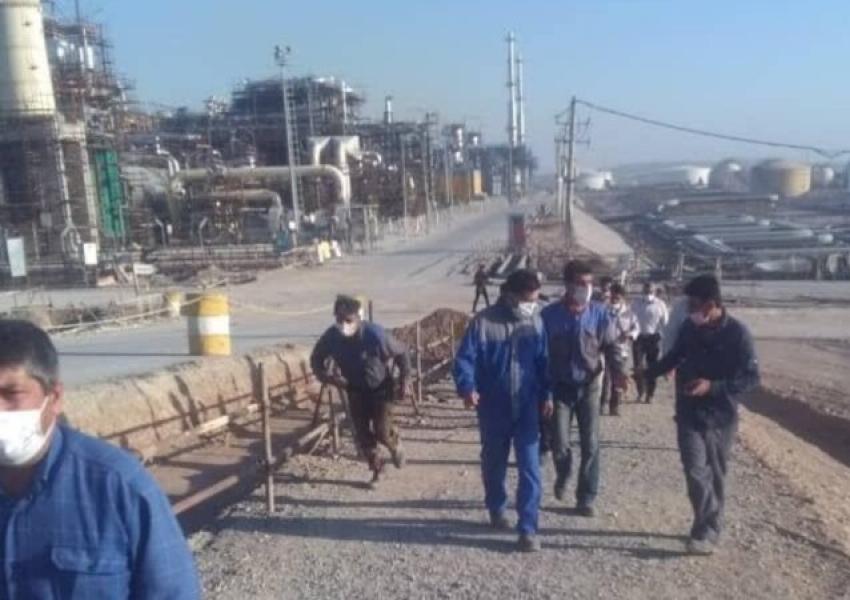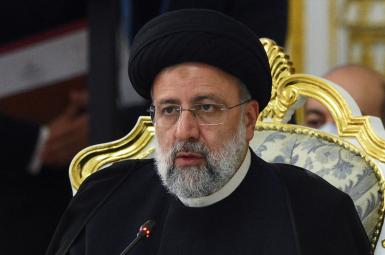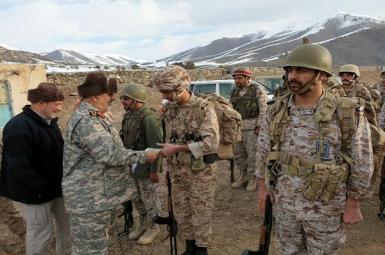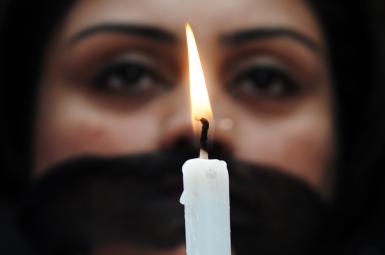
Iran Oil, Refinery Workers Draw Support In Demand For Higher Pay
Several trade unions and federations in Iran and abroad have backed the strike of contract workers in the Iranian oil sector which began June 19 at a number of sites in south. The strike is spreading in oil-rich southern and southwestern provinces as well to refineries in Tehran and Esfahan.
In the past few days, the Syndicate of Workers of Haft Tappeh Cane Sugar Company, the International Labour Network of Solidarity and Struggles, labor unions in Sweden, the Federation of Oil Unions of Iraq, an Iranian teachers' trade union have all issued statements in support of industrial action called by the ‘Coordination Council of Oil Industries Contract Workers.’
The potential economic damage is still not clear, but Iran heavily relies on earning foreign currency from the export of petrochemicals while its crude exports are sanctioned by the United States.
Ms.Parvin Mohammadi, Deputy Secretary of the Iranian Independent Workers Union, said Monday that strikes in the oil sector had spread to 70 companies in eight provinces.
Speaking to Iran International TV from Tehran, Mohammadi said authorities including Oil Minister Bijan Namdar-Zanganeh had not addressed the workers' demands. "They always wipe out the question instead of answering it," she said, adding that authorities made empty promises and arrested workers if they refused to end protests or strikes. Independent unions are not recognized by the government and are restricted.
The striking workers, who are casually engaged by contractors and sub-contractors of the National Iranian Oil Company (NIOC), National Iranian Gas Company (NIGC), and National Iranian Oil Refining and Distribution Company, say they will not return to work unless their demands are met.
Mostly technicians and tradesmen such as scaffolders, fitters, welders and electricians, they want monthly wages increased from $300 to $500, and better benefits such as ten, instead of five days off, in each working cycle of 20 days. This could allow them to return from oil rigs and facilities to homes often long distances away.
Most of the wrokers do show up at workplaces but refuse to work. Labor activists say that if workers do not show up they can be fired after three days or be pursued by security forces.
The workers also want better living conditions in communal dormitories, and higher health and safety measures. Mohammadi also said the strikers demand the abolition of subcontracting.
There are around 154,000 temporary workers in the energy and petrochemical industries who lack the benefits of regular employees who are better paid and have 15 days leave for every 15 days they work at oil production and refining operations. Over the past two decades, the NIOC has stopped hiring regular employees in many fields and instead hired thousands on short-term contracts to replace retiring workers. The Iranian Labour News Agency (ILNA) Thursday said workers claim that 80 percent of those in the sector lack regular contracts.
One worker quoted by INLA Sunday said contactors active in southern oil projects such as Asalouyeh, Bushehr province, had cut salaries to levels in the rest of the country where weather and working conditions are not as tough as in oil and gas fields. Striking workers told ILNA contractors paid wages behind time “every few months.”









